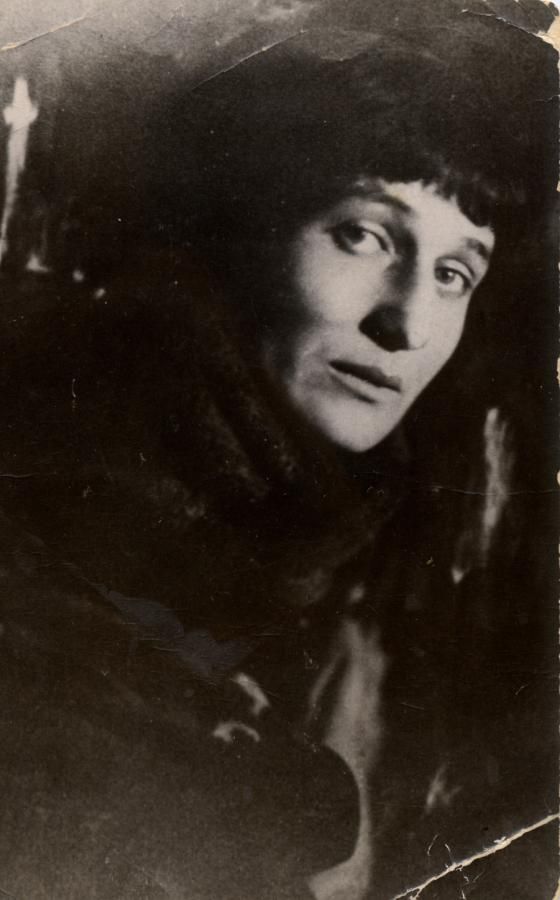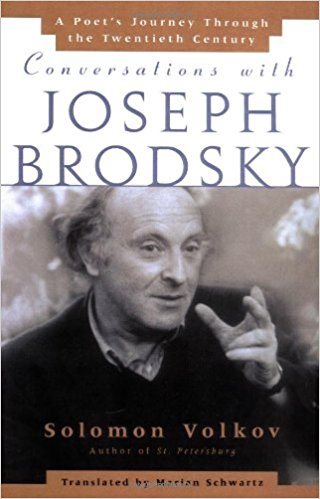
“You do not know what you were forgiven.”
A link for a radio discussion of the great Russian poet Anna Akhmatova – the interview is with the Irish journalist Mary Russell, one of her many fans, and it aired on RTE Europe here.
Akhmatova’s protégé was Nobel poet Joseph Brodsky, who was drawn to her circle in 1961, a few years before she died. He speaks for a few moments at the beginning of the clip, but to my ear the timber isn’t quite right, a bit tinny (and Russell calls him “Joe Brodsky,” which jars, because no one ever did).
He speaks about Akhmatova this way:
“She’s the kind of poet whose lines you unwittingly mumble to yourself, especially when you’re in trouble. I remember several times, when I would be sick in hospital, surgery, this and that, et cetera et cetera. I would find myself mumbling, completely unrelated to the situation, a few of her lines. Well, they are very memorable.”
Then Akhmatova’s own voice breaks in, reading a few lines in Russian, before he continues: “She was simply, physically, visibly, beautiful. Big gray eyes. Sort of like snow leopards – you know those eyes, ya? Tremendous nose. She was one of the most beautiful women of the century, I think. Tremendous head. Just … absolutely majestic.”
Russell describes her hours of on the train from Leningrad to Komarova, where Akhmatova is buried. Deep snow in countryside. Accompanying her, a woman who had attended the funeral in 1966. They walked through the darkening, forest to the cemetery. She brought flowers, and found the grave already covered with bunch of fresh, red carnations. (It reminds me of my own trek to Pasternak‘s austere, snow-swept dacha outside Moscow – I mentioned it here.)
But which lines did he mumble to himself? I wondered. Perhaps he gives a hint when he reads this 1919 poem, in Russian (it’s better in Russian, trust me):
Has this century been worse than those that went before?
Surely so, that in a fog of fear and grief
It has probed the blackest sore,
And yet has failed to bring relief.In the west the setting sun still blazes,
And city roofs are gleaming in its light,
But here Death scrawls crosses on the houses,
And calls the ravens, and the ravens fly.
 I’m not fond of this online translation, but too many of my books are still in boxes to hunt for something better. Perhaps Solomon Volkov cuts to the heart of the matter when in Conversations with Joseph Brodsky:
I’m not fond of this online translation, but too many of my books are still in boxes to hunt for something better. Perhaps Solomon Volkov cuts to the heart of the matter when in Conversations with Joseph Brodsky:
“We did not go to her for praise, or literary recognition, or any kind of approval for our work. […] We went to see her because she set our souls in motion, because in her presence you seem to move on from the emotional and spiritual – oh, I don’t know what you call it – level you were on. You rejected the language you spoke every day for the language she used. Of course, we discussed literature, and we gossiped, and we ran out for vodka, listened to Mozart, and mocked the government. Looking back, though, what I hear and see is not this; in my consciousness surfaces one line from the same ‘Sweetbriar in Blossom’: “You do not know what you were forgiven.” This line tears itself away rather than bursting out of the context because it is uttered by the voice of the soul, for the forgiver is always greater than the offense and whoever inflicts it. This line, seemingly addressed to one person, is in fact addressed to the whole world. It is the soul’s response to existence. It is this, and not the ways of verse-making, that we learned from her.”
Tags: "joseph brodsky", Anna Akhmatova, Mary Russell, Solomon Vokov


January 18th, 2018 at 7:18 am
Thanks, Cynthia. I love that poem, and wrote in my journal. What power!